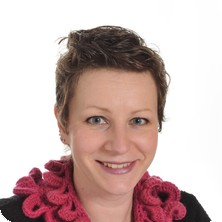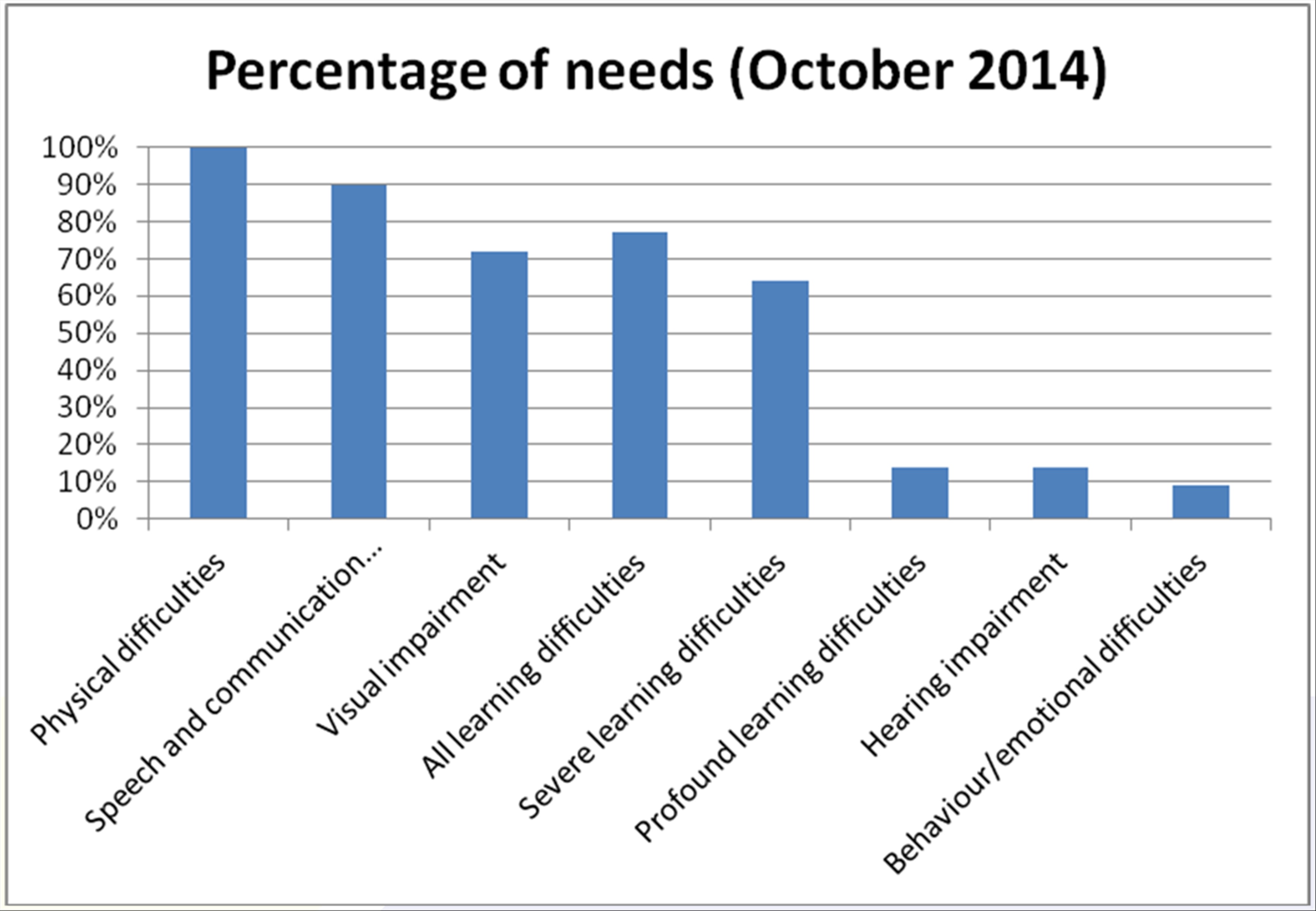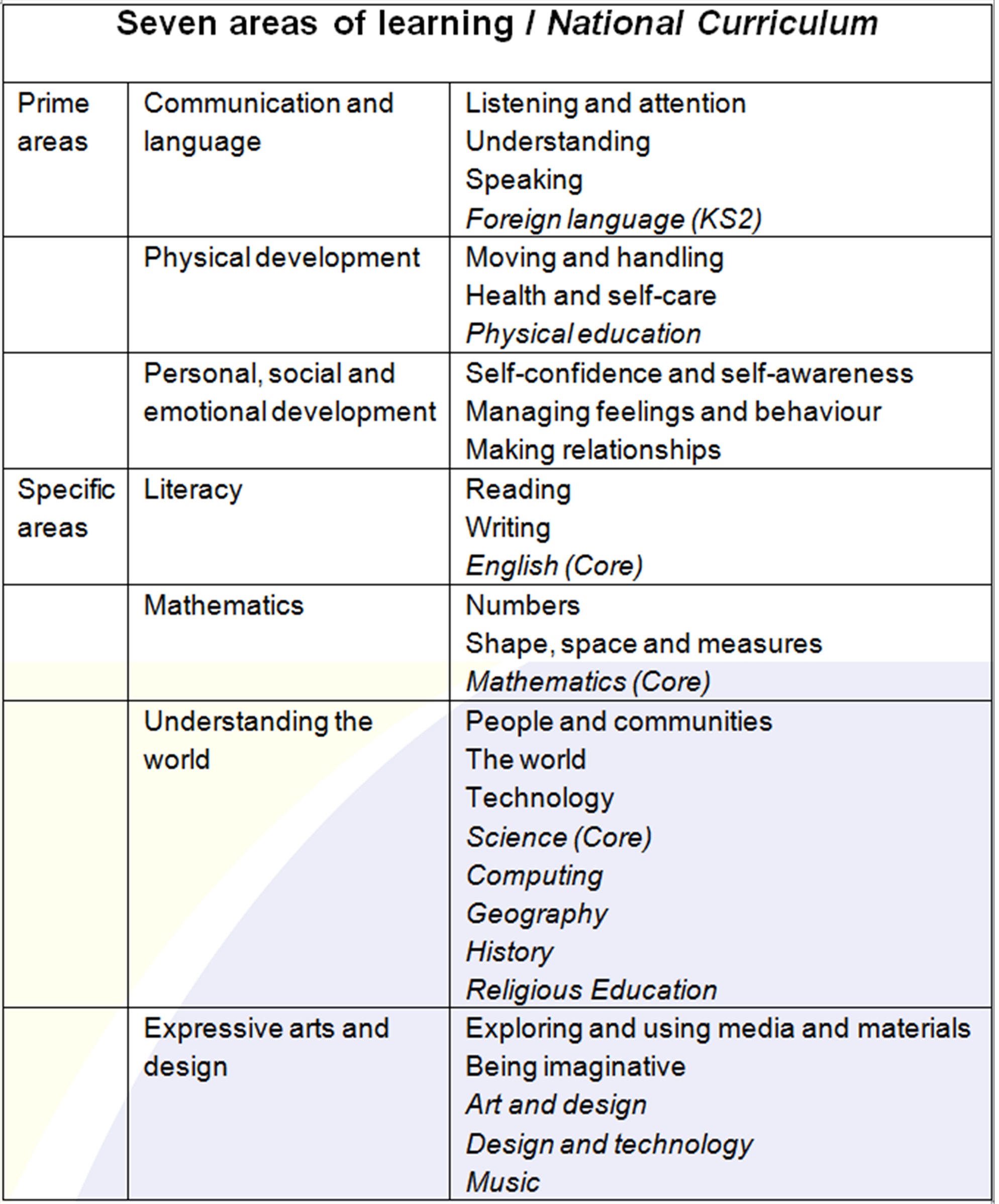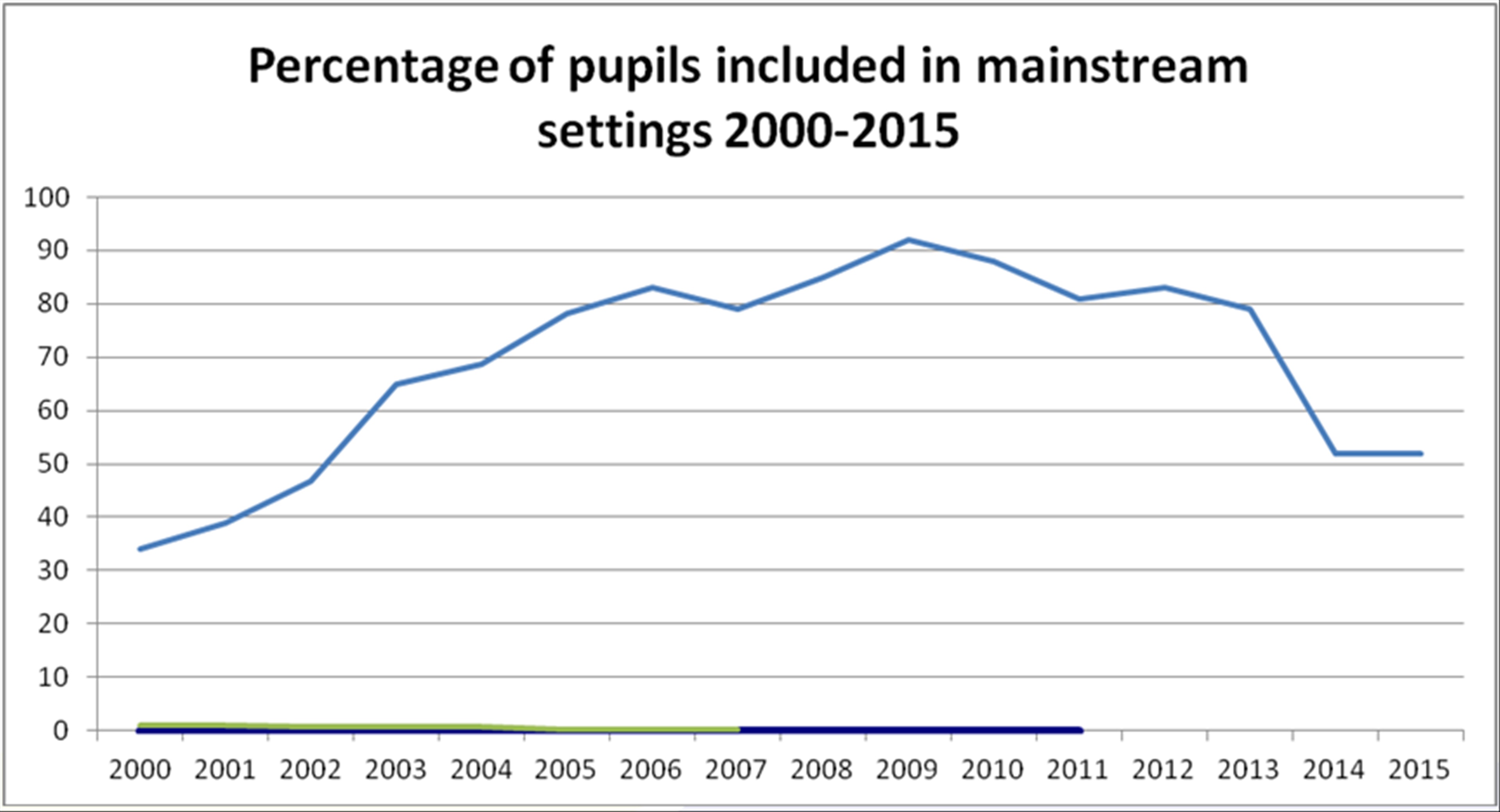Vranch House is a centre for the treatment of over 2,000 outpatients with physical difficulties, a provider of various therapies throughout Devon and an independent Day School in Exeter for children with significant physical difficulties.
Find out more...Last updated: 26/07/2024
Headteacher's Report 2014

VRANCH HOUSE SCHOOL PROFILE 2014
I gained my conductor-teacher diploma at the International Peto Institute in Budapest, Hungary in 2007. The same year I completed a sign language interpreter diploma. Following my move to England I worked at Robins Respite Centre and at Dartington Primary School, providing supply to Bidwell Brook School and Vranch House. I joined the Inclusion Team at Vranch House in 2005. I was supporting mainstream settings on adapting the curriculum. In 2011 I celebrated the birth of my little boy and the completion of the Masters in Special Educational Needs; 2012 brought me my second child, a little girl this time. In 2014 I took on the exciting challenge of the headship of Vranch House. The colourful personalities of the children, the supportive families and the brilliant teaching and therapy staff help my work everyday.
1) What have the changes been this year?
- Staff redeployment to keep in line with best safeguarding practice
- New timetable system
- New whole school curriculum
- Change from PIVAT to CEM-Durham assessment tool
- Whole school trip
- Families' Saturday coffee mornings
- Disability Equality Scheme and Accessibility Plan 2014-2017
- Whole School Development Plan
- Changing Individual Education Plans to My Goals
Staff redeployment to keep in line with best safeguarding practice
It is stated in our Safeguarding Policy that staff move to different class groups every two years. The new class teams are:
Class 1 - Teacher - Michelle Woodgates, BSc Early Childhood Studies, PGE Early Years, PGCE in Learning Disabilities - Profound, Severe & Complex (Distinction)
Teaching Assistants:
- Chelsea Armstrong, BTEC Level 3 Childcare, Learning & Development
- Tammy Brown, Level 3 Diploma Children & Young People's Workforce, Level 3 Diploma Teaching Assistant
- Helen House, Level 3 Diploma Children & Young People's Workforce
Class 2 - Teacher - Chloe Bond, B.Ed(Hons), QTS
Teaching Assistants:
- Veronica Lye, LSA Award GQA Level 4
- Sandra Selley, NVQ-Care Level 2-Developmental Care
Class 3 - Teacher - Deborah Down, BA(Hons), PGCE, Diploma in Child Psychology
Teaching Assistants:
- Julie Lobb, Level 3 Diploma Children & Young People's Workforce
- Debbie Prout, LSA Award GQA Level 3
New timetable system
During the school day most of the children are regularly taken out of the classroom for individual therapies. To enable the therapists and the teaching staff to work to the same timing we created school days with five 40 minute sessions. All classes start the day with circle time - registration, sharing feelings, weather forecasting, sharing news and discussing the daily timetable by completing the visual timetable. During some lessons each day the children mix and join small groups of children from other classes who are working towards similar goals. Many therapy sessions take place and are incorporated into class time to lessen the time pupils need to spend out of the classroom.
There is a morning and an afternoon break each day. Each afternoon all children attend therapy or educational sessions in the outdoors. There are whole school assemblies to celebrate special achievements as well as to learn about the topic, RE and to see and hear about the news and different cultures of the world. We have regular visitors to assemblies talking about their interests.
With the introduction of the new timetable a school bell was installed to mark the end of the lessons and break times. Many of our pupils attend mainstream settings and are familiar with the bell. So now "we are a proper school" as one of our pupils said.
New whole school curriculum
The needs of our pupils vary greatly and there is no existing scheme of work that would offer appropriately differentiated learning for our pupils.

The four teachers researched the National Curriculum, the Early Years Foundation Stage Curriculum, QCA, SEAL and other documents and wrote our own curriculum. The curriculum is based on the seven areas of learning to make sure we are offering a truly broad and balanced learning experience to all children. The whole school curriculum then differentiated by the class teachers according to the children's age and development.

Change from PIVAT to CEM-Durham assessment tool
We have changed the assessment tool the teachers are using when assessing pupil progress. The use of this new tool enables us to be more in line with the assessments of our mainstream partner schools.

The decline in number of pupils being included in mainstream settings is due to the more complex needs of the school children. Vranch House promotes inclusion and is keen to set up and support such placements in the children's own community.
Whole school trip
In June 2014 the whole school walked from Lympstone to Exmouth. We saw many different types of transport which tied in with our topic (transport) in the summer term. We are hopeful that this was the first of many annual whole school trips.
Families' Saturday coffee mornings
Families are invited quarterly on a Saturday morning to exchange information and experience with fellow parents over a cup of coffee whilst their children are taking part in art and craft and game activities organised by staff volunteers.
Disability Equality Scheme and Accessibility Plan 2014-2017
The Disability Equality Scheme and Accessibility Plan for the coming three years contains some exciting big plans, such as the complete rebuild of the hydrotherapy pool building; the toilet area of Class 3 will be refurbished as well as the speech and language therapy room.
Whole School Development Plan
The Whole School Development Plan for the coming year include enhanced teaching of writing, improve bank of switch operated toys and small equipment, reinstate the school council, create an indoor sensory trail and a greater outdoor growing environment.
The detailed Disability Equality Scheme and Accessibility Plan and the Whole School Development Plan are available from the Head Teacher.
Changing Individual Education Plans to My Goals
Termly ‘My Goals' are written and evaluated by all Vranch House professionals, involving parents and pupils. We changed the layout to make it more pupil centred and to follow the seven areas of learning. We send home the teachers' planning and termly leaflets with ideas on how parents can support their child's learning.
2) What have been our successes this year?
- We continue to work successfully and have been welcoming teaching students from the University of Exeter and Plymouth University. Exeter College students attend on a regular basis as do Peninsula Medical students.
- For many years in a row "Whizz-Kidz week" again was a great success. All children participate in learning new wheelchair skills from the inspirational Whizz-Kidz ambassadors.
- Class visits during this year included the Northcott Theatre and Otter Nurseries.
- A giant mobile planetarium visited us and children enjoyed learning about stars and planets.
- We enjoyed a visit and demonstration from the Exeter City Youth Football Team and Tim Mock model helicopter and aeroplane enthusiast.
- Noah the dog for the disabled and his life companion, Phil, visited us a few times.
- Through the webcam we witnessed the blue tit eggs hatch which was a unique experience.
- The topic in the Summer term was ‘transport' on road, rail, water, air and space. A policeman visited us and the children could sit in his car, we saw an army jeep, a campervan and we heard about transport on horse back.
- Families' Saturday coffee mornings were well received by parents and all had a fun time. We hope that the fourth coffee morning will be as successful as the first three were.
3) How much progress do pupils make?
Pupils at Vranch House make good progress when their baseline achievements are taken into account. Teachers carry out continuous assessments to ensure that the targets set for the pupil are appropriate and challenging. Termly full assessments are recorded in individual assessment folders as well as the evaluation of each ‘My Goal'. At the end of each academic year the achievements are compared to targets set the year previously.
4) How are we making sure that every child gets teaching to meet their individual needs?
- Individual 'My Goals' linked to education health care plan/statement of special educational needs and annual review, with a focus on personalised learning, individual needs and life skills development.
- Individual 'My Goals' targets included across all planning for class and group work, using a multi-professional approach.
- Formative and summative assessment including pre-entry assessment, Early Years Foundation Stage Curriculum profiles, termly assessment of National Curriculum and P Scale levels and sub levels, annual school report, annual and interim review reports.
- Annual monitoring of pupil progress using Durham data analysis.
- Moderation of individual pupil assessment, including links with mainstream schools.
- Regular meetings between staff to ensure children's needs are met.
- Targeted curriculum.
- Input and support from Educational Psychologist and Advisory Teachers as necessary.
- Personal Education Plans for pupils away from school for a prolonged time.
- Music therapy, as appropriate.
5) What have pupils told us about the school, and what have we done as a result?
- Pupils have enjoyed the interactive displays in the corridors and we are continuing to develop an interesting indoor and outdoor learning environment.
- The recently reformed school council, through which pupils have an opportunity to contribute towards ideas and decisions. For example the school council decided on the plants the school will grow.
- School council members feed back their decisions to the whole school.
- We are encouraging pupil voice across the school community.
6) How do we make sure our pupils are safe and well supported?
- School nurse on duty at all times and good staffing levels.
- Pupils are encouraged to let staff know if they have any problems.
- Regular clinics held at school: paediatric, orthopaedic, orthoptic, audiology and wheelchair clinics.
- Children's diets monitored.
- Provision of healthy snacks at break times.
- Effective links between home, respite, transport and mainstream placements to ensure up to date knowledge on learning, therapy, medical or communication needs are shared.
- Effective induction of new staff.
- Good standard of moving and handling, including regular updates and training.
- Safeguarding policies in place and a high level of staff awareness.
- Regular child protection and safeguarding updates.
- Liaison with mainstream schools regarding issues such as attainment, moderation and attendance.
- Regular teachers, staff and support staff meetings to raise concerns or issues.
- A Staff Governor who provides an easily accessible link between staff and management. The Staff Governor represents the views of staff at support and governors meetings.
- Comprehensive health and safety policy with regular premises checks.
- Closed circuit security cameras outside the building.
- Secure boundaries around school.
- Good security procedures - registration of visitors, car parking permits.
- Visitors to school informed re policy on use of mobile phones in school.
- Regular fire drills.
- High levels of investment in buildings and equipment and regular maintenance.
7) How do our absence rates compare with other schools?
The total number of pupils of compulsory school age on roll for at least one session - 17.
Percentage of pupil sessions (half days) missed through authorised absence - 12.25% and through unauthorised absence - 3.07 % (largely due to unavoidable problems with one pupil).
8) What activities are available to pupils?
- Broad and balanced curriculum.
- Music therapy sessions for individual children.
- Outdoor nature trail and classroom including tracker mobility device.
- ICT - children individually assessed and given full access to ICT with fully accessible Learning Resource Centre.
- Access to eye gaze computer.
- Swimming / hydrotherapy.
- P.E. and Swimming badges/certificates (as appropriate).
- Range of educational visits off-site e.g. Northcott Theatre, Inclusive Playpark, Haldon forest.
- Links with Whizz-Kidz Charity.
- Sensory room.
- Play room.
9) How are we working with parents and the community?
- Parent representatives on the Board of Governors.
- Signing and moving and handling courses and Therapy/School Open Weeks.
- In school training opportunities and postural management workshops to encourage parents to try out equipment and ask the experts for advice.
- Therapy sessions provided during holidays.
- Fundraising activities for charities by the children including Children in Need and Young Epilepsy.
- Daily communication through diaries and communication aids.
- Termly educational and therapy goals and their evaluation.
- Termly parent support leaflets on how families can support their child's learning at home.
- Extensive reports written to annual reviews.
- End of year Achievement Awards.
- Special merit certificates.
- Summer Fayre.
- Student placements from universities and colleges.
- Parents and families invited to school events e.g. school play and Christmas Carols, Easter Bonnet parade, Achievement Awards assembly, Harvest Festival.
- Families' Saturday coffee mornings.
- Whole school trip in the summer term.
- Parents are encouraged to talk to the Head Teacher, the class teachers or therapists should they have any queries. Parents are welcome to join in therapy or school sessions.
10) What do our pupils do after leaving this school?
Some of the pupils continue their education in their mainstream schools, if they move to full inclusion before secondary age. Some pupils go on to secondary mainstream or special schools depending on what is the most appropriate provision for the child's individual needs.
11) What have we done in response to our latest Ofsted Inspection in May 2012?
Extracts from Ofsted report in May 2012:
‘Vranch House School provides an good quality of education.‘
‘The outstanding quality of welfare, health and safety of pupils, including safeguarding, and the outstanding provision for their spiritual, moral, social and cultural development ensure that pupils make outstanding progress in their personal development.'
What the school could do to improve further:
- Improve consistency in teaching and learning by refining the learning goals in all lessons so that they are always matched precisely to the needs of the pupils.
Learning goals are set by the teaching, therapy and nursing team in consultation with the parents and the child, as well as the mainstream setting. All children are given individual goals at each lesson.
- Build on the already good assessment procedures and implement the new assessment systems consistently in classes across the school so that academic progress can be tracked more precisely.
Teachers in key stages 1 and 2 use the same assessment tool. Regular moderation takes place within Vranch House by teachers and teaching staff in the mainstream partner schools. All pupils are assessed termly to track progress and refine targets.
- Improve the curriculum by implementing plans to link more closely the learning and therapeutic aspects of pupils' education.
Many therapy sessions take place and are incorporated into class time to lessen the time pupils need to spend out of the classroom. Teaching staff and therapists plan their sessions according to the whole school topic. For example during our topic ‘space' the pupils in hydrotherapy session learnt to float in the pool like astronauts would do in space.




